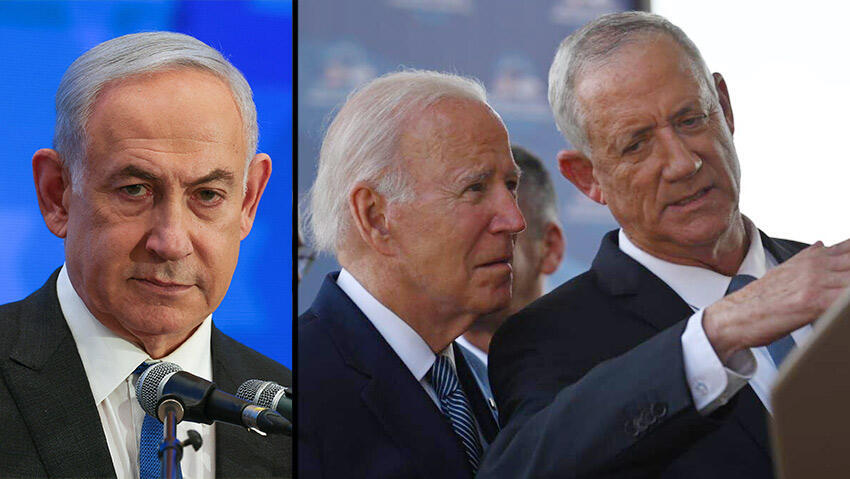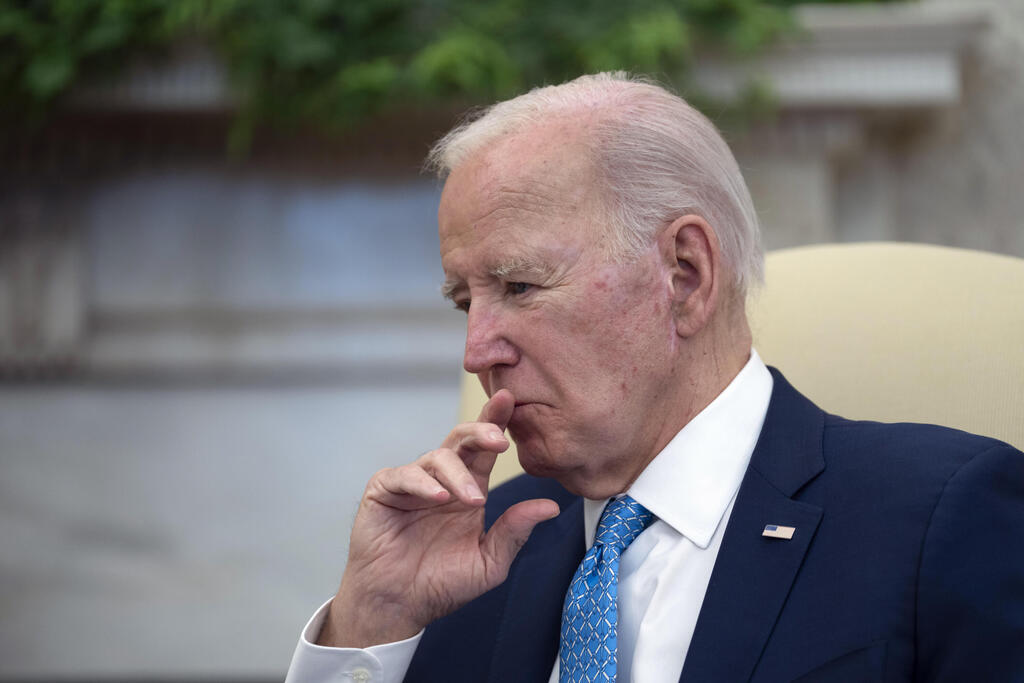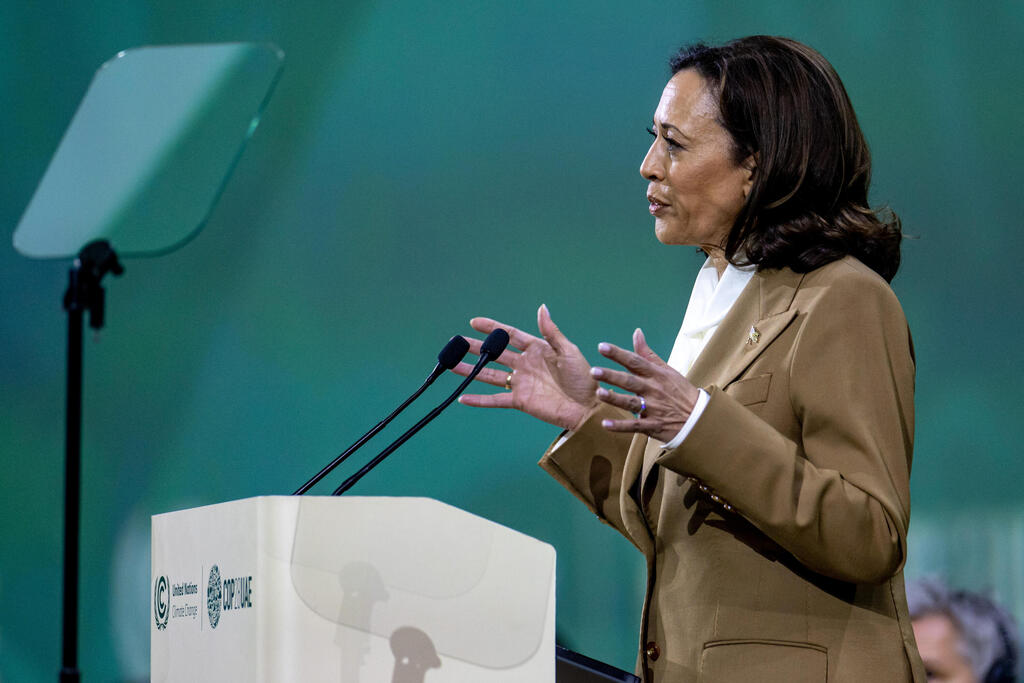Getting your Trinity Audio player ready...
Despite Israeli officials' assessments that Hamas leader Yahya Sinwar aims to derail hostage negotiations to intensify regional tensions on Ramadan, they hold onto the prospect of a change in the terror group’s stance through significant U.S. pressure, which could revive the talks.
Read more:
Jerusalem anticipates that the United States will urge other intermediaries, Egypt and Qatar, to adopt a more assertive approach and employ rigorous measures against Hamas.
The expectations include a demand for Qatar to caution Hamas leaders in Doha about possible expulsion unless they disclose crucial information, such as the number of living hostages and the specifics of their prisoner exchange demands. Another potential pressure tactic could involve freezing bank accounts.
Israel has unequivocally stated that absent an agreement, the IDF will continue its military operations at full force, including during Ramadan. This may involve ground operations in Rafah and the refugee camps in central Gaza, where Hamas's principal forces are stationed.
Though the political leadership has not yet made a final decision to proceed with such actions, the possibility is being seriously considered, as indicated by explicit statements from War Cabinet members: Prime Minister Benjamin Netanyahu, Defense Minister Yoav Gallant and Minister Benny Gantz.
With Ramadan set to begin on March 10 this year, there is a sense of urgency in the timeline. The United States, deeply concerned about the escalation of conflict during a period that has grown increasingly tense in recent years, is eager for a swift resolution.
In light of these developments, the Telegraph reported that U.S. President Joe Biden is growing "increasingly impatient" with the situation, amid the political pressure he faces due to his steadfast support for Israel's position thus far.
According to the report, over the last weekend, he turned to his negotiation team and instructed them to "get me a deal," highlighting the urgency due to the approaching Ramadan.
Meanwhile, Qatari network The New Arab reports that the first day of discussions between Egypt, Qatar and Hamas in Cairo has concluded. During these discussions, the countries heard Hamas' complete response to the proposal formulated at the Second Paris Summit.
"Israel's decision not to send a delegation to the talks did not affect the discussions," sources familiar with the details claimed. "Egypt and Qatar assured the U.S. that an agreement could be reached if pressure is applied on the Israeli side.
“Egypt views Hamas' demands for the return of Gaza's residents to the north, the introduction of aid, and a complete cease-fire as reasonable. Egypt and Qatar believe that these conditions are suitable for reaching an agreement through pressure on the parties involved."
Conversely, Washington accused Hamas on Saturday of delaying the agreement, saying that a six-week cease-fire could have already begun if not for their obstruction.
Gantz in Washington
Meanwhile, the breakdown in talks complicates the U.S.'s domino strategy. The United States pressed for a deal before Ramadan, hoping it would facilitate White House Special Envoy Amos Hochstein's efforts to advance the agreement between Israel and Lebanon.
3 View gallery


Prime Minister Benjamin Netanyahu; Biden with Minister Benny Gantz
(Photo: GPO, REUTERS/Ronen Zvulun)
Hochstein arrived in Israel Sunday night and is scheduled to meet Monday with Prime Minister Netanyahu, Defense Minister Gallant, Strategic Affairs Minister Ron Dermer, and Mossad Director David Barnea, before heading directly to Lebanon.
Hochstein is moving forward to promote the arrangement even without an Israel-Hamas deal, a much more challenging task absent a cease-fire, as Hezbollah will refuse to hold back its fire.
Israel, for its part, will make it clear to Hochstein that the window for a diplomatic solution is narrowing, as previously warned, and the risk of a full-blown war is increasing.
Without a hostage deal, U.S. efforts to advance normalization between Israel and Saudi Arabia and to discuss the future of Gaza—with a reformed Palestinian Authority and the vision of a two-state solution—will become more complex.
Amid this tense situation, War Cabinet member Benny Gantz has landed in Washington, set to hold a series of meetings on Monday with Vice President Kamala Harris, Secretary of State Antony Blinken, National Security Advisor Jake Sullivan and President Biden's advisor Brett McGurk.
Within Gantz's circle, there remains hope that President Biden will extend an invitation to the White House, offering a pleasant surprise.
The Americans regard Gantz as a political alternative to Netanyahu, seeing him as a partner in furthering their vision for a transformed Middle East. This vision includes Israel establishing normalization agreements with several countries and making strides toward resolving the Palestinian conflict for the first time in years.
Gantz, on his end, intends to use his visit to promote the War Cabinet's policies and strategic initiatives.
The U.S. government that Benny Gantz will meet on Sunday is not the same as it was after the October 7 attack. As the war has dragged on, the number of Gazans killed has continued to rise, and discussions about the "day after" and a resolution have been delayed, leading to increasingly sharp U.S. criticism of Israel.
President Biden has already made clear statements against the government, mentioning extremists "like Ben-Gvir" who are leading Netanyahu.
Vice President Kamala Harris, for her part, has also leveled strong criticism at Israel on Sunday, saying,
"What we are seeing every day in Gaza is devastating,” asserting that "too many innocent Palestinians have been killed."
She added "People in Gaza are starving. The conditions are inhumane and our common humanity compels us to act," adding that "the Israeli government must do more to significantly increase the flow of aid. No excuses."
She also said there must be an immediate cease-fire in Gaza for at least six weeks that would secure the release of hostages that Hamas kidnapped while allowing more aid to get inside Gaza.
"Hamas claims it wants a cease-fire. Well, there is a deal on the table. And as we have said, Hamas needs to agree to that deal," Harris said. "Let's get a cease-fire. Let's reunite the hostages with their families. And let's provide immediate relief to the people of Gaza."
Harris also addressed the stampede by desperate Gazans on Thursday when they swarmed aid trucks. Israel says most of the more than 100 people killed died as a result of the human crush, while the Palestinians say they died from IDF gunfire.
She said that the "people seeking aid in Gaza were met with gunfire and chaos."





